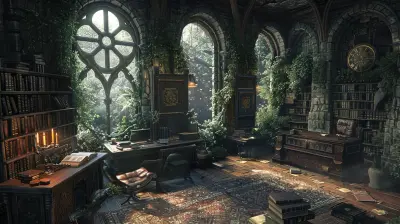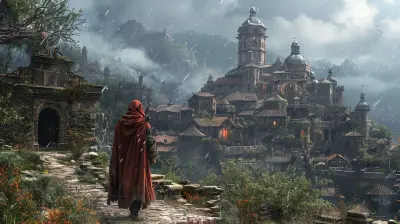PlayStation Exclusives: Titles That Shatter Genre Expectations
5 July 2025
When most people hear the term "PlayStation Exclusive," their mind may immediately jump to epic action-adventures or cinematic third-person shooters. And sure, Sony’s first-party studios have carved out a reputation for delivering gorgeously crafted narratives and gameplay. But what if I told you that some of these exclusives have boldly redefined what we expect from certain genres? Yep—these games don’t just follow the rules; they flip the table and rewrite the playbook entirely.
So, let’s dive into the standout PlayStation exclusives that totally blow up genre boundaries and redefine how we look at modern gaming.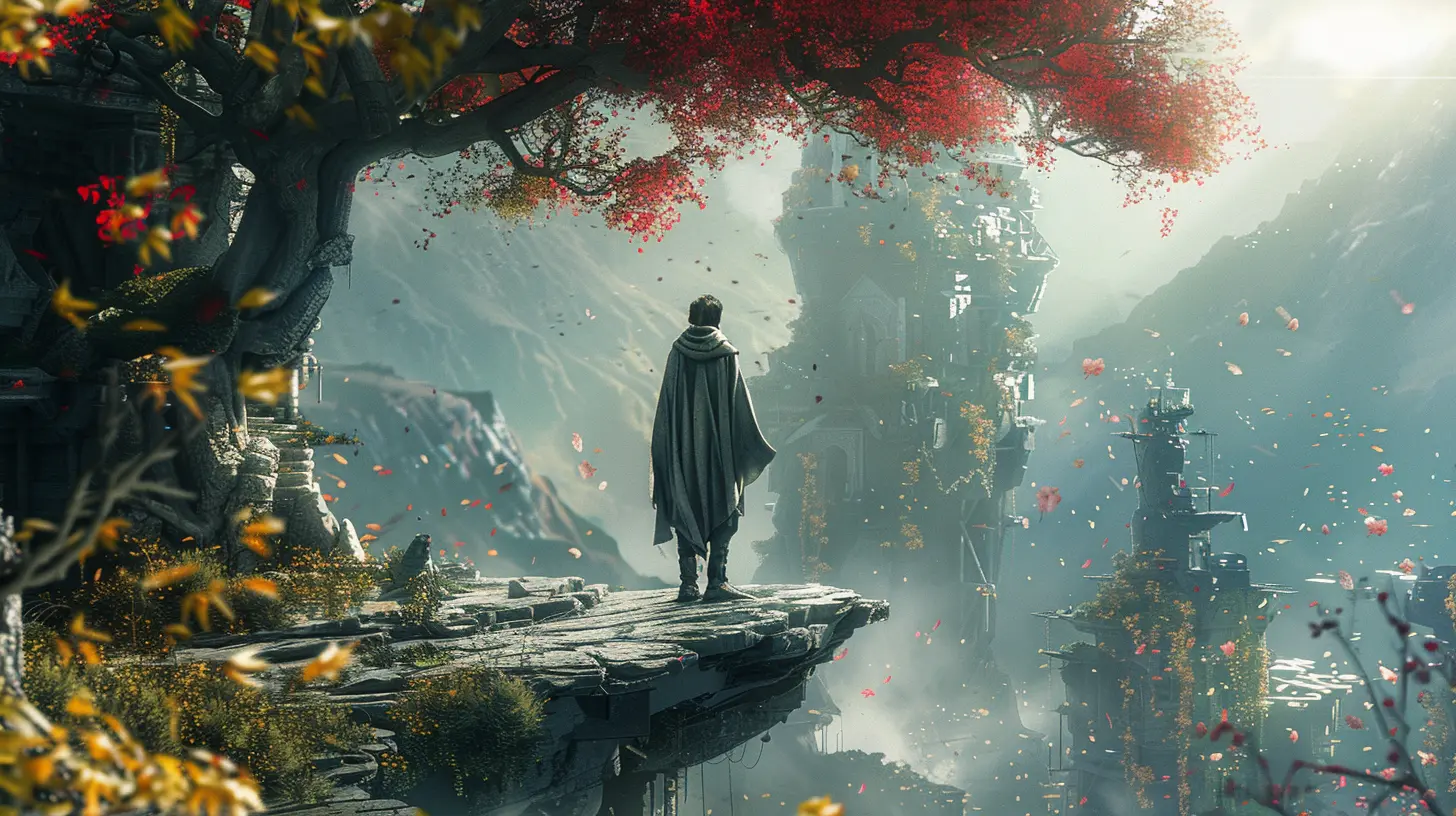
The Magic of PlayStation: More Than Just Great Graphics
Before we jump into the list, let's get real for a sec. What makes a game unforgettable? Is it stunning visuals? Smooth controls? Sure, that stuff matters. But the real game-changer (pun intended) is innovation. PlayStation’s exclusives often go beyond ticking checkboxes—they innovate, surprise, and sometimes, completely mess with our expectations.Remember the first time you played a game that made you say, “Wait a minute… I didn’t expect this”? That’s the spirit of this article.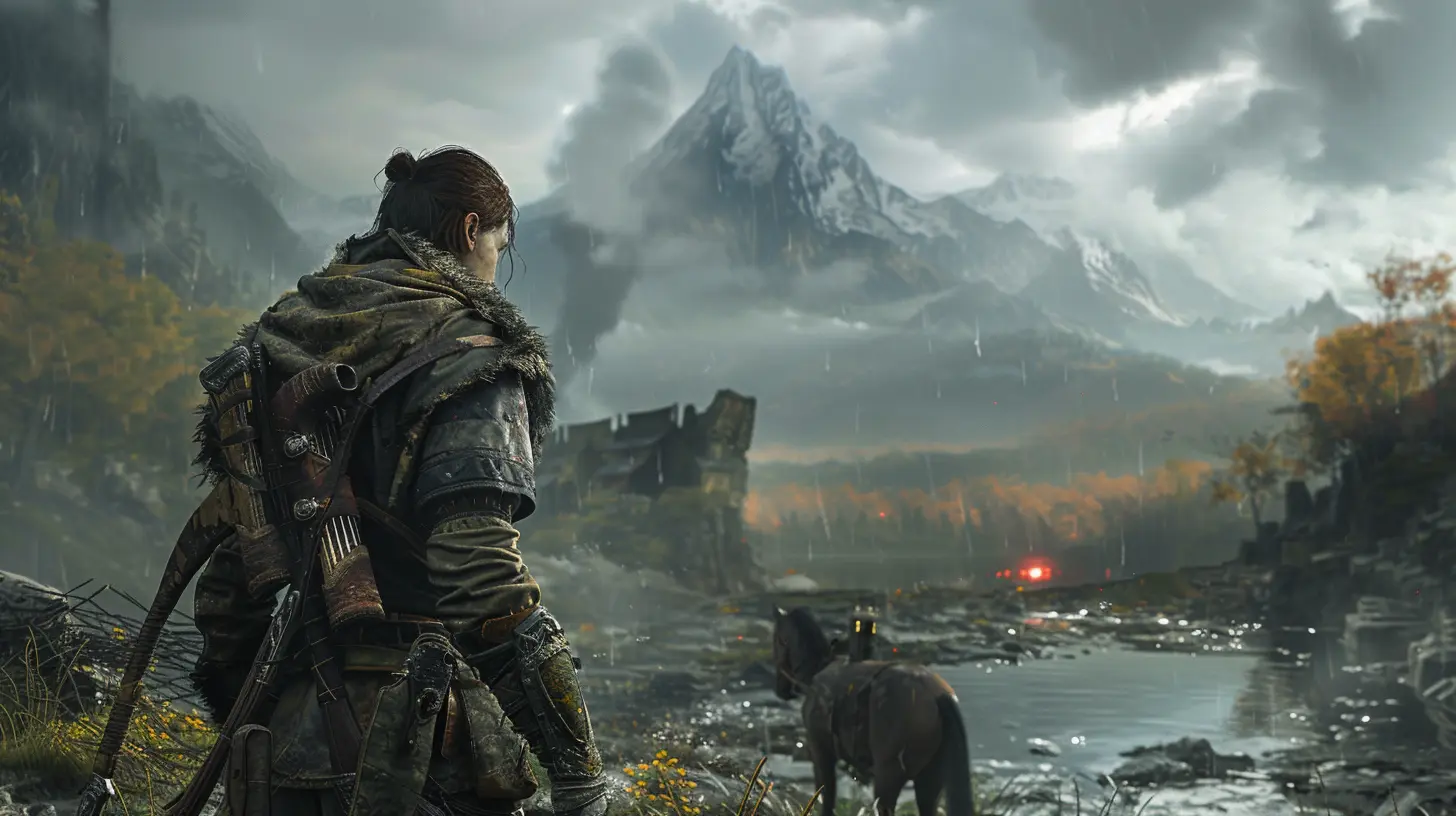
1. Horizon Zero Dawn – Open-World Meets Sci-Fi Cavemen?
Let’s kick things off with a bang.When Guerrilla Games unveiled Horizon Zero Dawn, fans were baffled. Wait... wasn’t this the same studio behind the gritty, gun-metal world of Killzone? Suddenly, they’re dropping us into a vibrant, post-post-apocalyptic world filled with robot dinosaurs and tribal societies?
Talk about a genre mash-up!
- Why it breaks the mold: It flips the usual sci-fi narrative. Instead of starting with high-tech civilizations and descending into chaos, Horizon presents a future where society has already collapsed and nature has reclaimed the Earth.
- Genre fusion: Survival RPG meets futuristic sci-fi, wrapped in a tribal bow.
- Impact: It showed the world that open-world games could still surprise us with fresh lore and jaw-dropping innovation.
Plus, how often do you get to shoot an arrow at a mechanical giant T-Rex?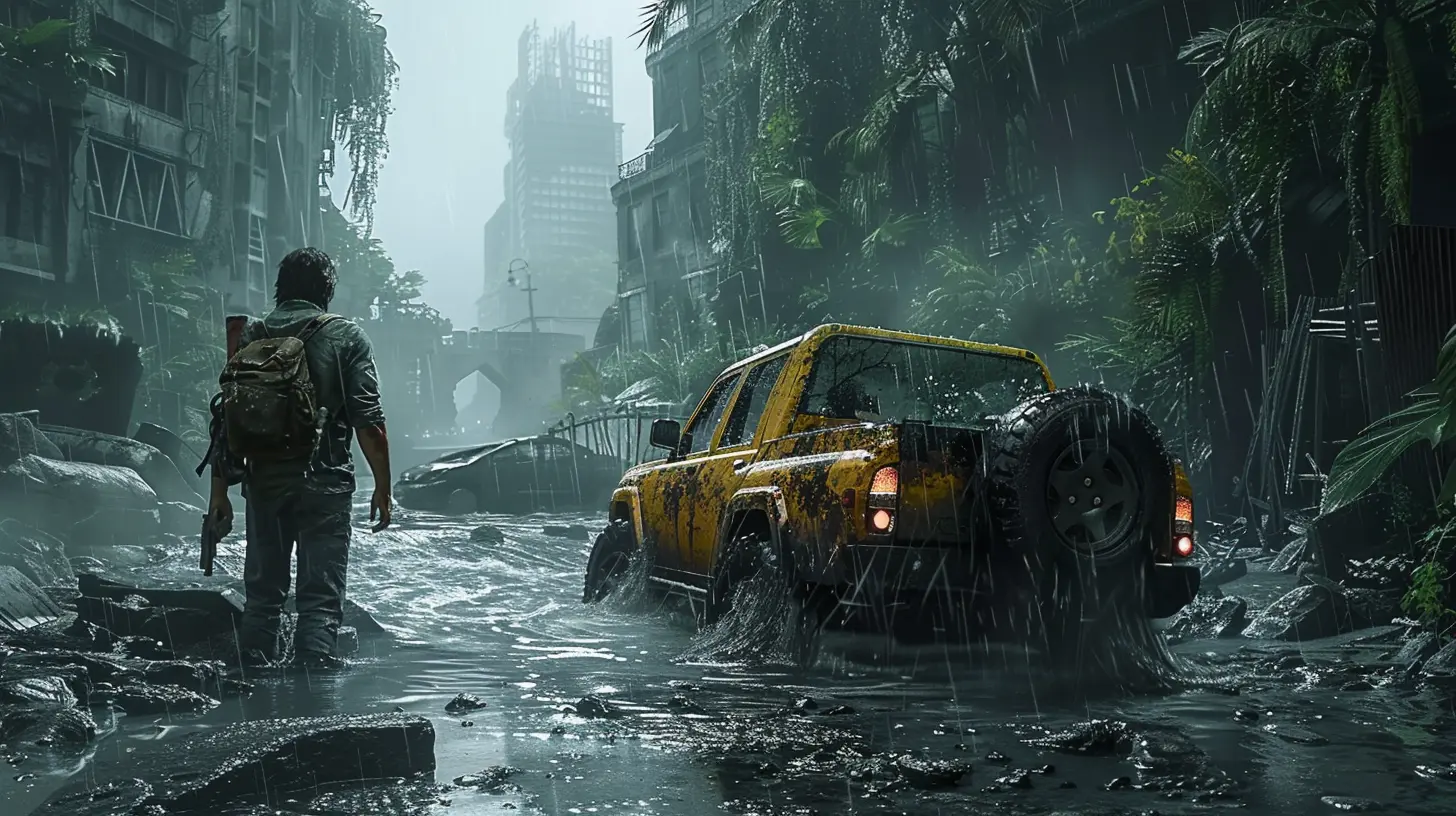
2. Bloodborne – Horror in a Soulsborne Shell
Sure, FromSoftware is the mastermind behind the Souls games, but Bloodborne took things in a thrillingly terrifying direction—one fans weren’t totally ready for.- Why it’s genre-defying: While it fits the "difficult RPG" mold, Bloodborne leans heavily into Lovecraftian horror. It swaps slow, tactical combat for aggression and speed, ditching shields for pistols.
- The twist: The more you explore, the more your sanity deteriorates. Literally. The game’s narrative unravels in a way that makes you question everything you thought you knew.
- Emotional reaction: It’s not just hard—it’s downright haunting.
This wasn't your typical action RPG. It crawled under your skin and stayed there. It's like Dark Souls had a nightmare and Bloodborne was born from it.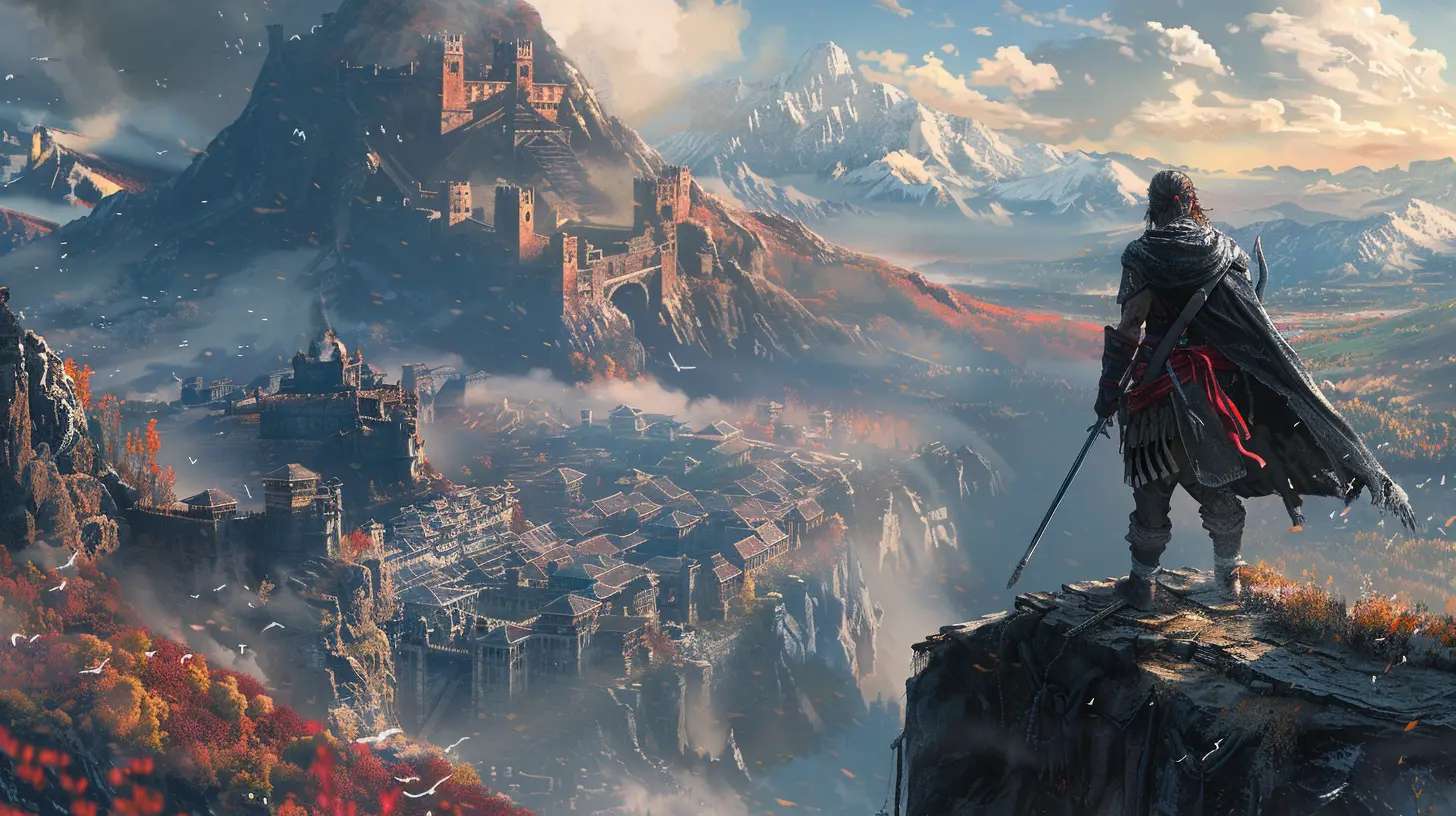
3. The Last of Us Series – Zombies? Not Quite.
Cue the groans—“Oh, another zombie game? Yawn.” Hold that thought.The Last of Us turned the overdone zombie apocalypse genre into a deeply personal, emotionally raw experience. It wasn’t about mowing down hordes of the undead; it was about surviving emotional trauma, navigating complex human connections, and dealing with moral ambiguity when all the rules are gone.
- Genre it shatters: Standard zombie shooters.
- What it does differently: It focuses on storytelling, character development, and emotional weight more than action. It makes the monsters almost secondary to the human drama.
- The legacy: It set a new gold standard for narrative in games. Period.
The sequel? Even bolder. It took risks most AAA games wouldn’t dare attempt—and whether you loved or hated it, it sparked conversations far beyond gaming circles.
4. Dreams – The Game That Makes YOU the Game Dev
Imagine a game that isn’t really a game—but a tool to create any game you want. Sounds wild, right?Enter Dreams by Media Molecule—the folks who brought us LittleBigPlanet. This creative sandbox lets users build everything from platformers to full-blown RPGs, animations, music, and even short films.
- What makes it revolutionary: It’s a genre-less game. It’s a creativity engine. The only limit? Your imagination.
- Who it’s for: People who’ve ever said, “I wish I could make a game.”
- Reality check: Some of the user-created content in Dreams rivals professionally developed indie titles.
It’s like having a GameDev toolkit right in your living room, without needing to code a single line.
5. Ghost of Tsushima – More Than a Samurai Game
At first glance, Ghost of Tsushima looks like your standard historical samurai epic. But it’s so much more.Sucker Punch crafted a love letter to Japanese cinema, especially the films of Akira Kurosawa. The plot, visuals, combat—all drip with style and soul. But it’s how the game presents choice and honor that really sets it apart.
- Genre expectations: Think basic hack-n-slash or stealth action.
- What it delivers: A poetic, deeply philosophical journey about honor, loyalty, and sacrifice. Plus, a combat system that feels like dancing with death.
- Unique touches: The Kurosawa Mode (black-and-white film filter) makes every duel feel like a movie masterpiece.
It’s not just a samurai game—it’s an artistic experience.
6. Returnal – Roguelike Meets AAA Third-Person Shooter
If you told someone, “Hey, I've got this fast-paced roguelike with bullet-hell mechanics and a deep, psychological sci-fi story,” they’d probably blink at you like you were speaking Klingon.But Housemarque combined all of that in Returnal, and somehow, it works fantastically.
- What makes it unique: It blends AAA visuals and storytelling with the punishing loop of a roguelike.
- Narrative twist: The story isn’t just background noise—it unfolds as you make progress, anchored by trauma, memory, and existential dread.
- Gameplay loop: It's relentlessly tough, yet addictive. Every death feels like a clue, not a failure.
It’s like Hades had a baby with Control, and it was raised on a steady diet of sci-fi thrillers.
7. Ratchet & Clank: Rift Apart – Platformer With a Sci-Fi Twist
You might think you’ve seen everything a platformer can do. But Rift Apart brings tech wizardry and storytelling together in a way that makes Mario look like he’s stuck in 2D.With the power of the PS5, Rift Apart uses dimension-shifting to create seamless gameplay transitions and puzzles that feel like magic tricks.
- Beyond expectations: Not just cute mascots and zany guns—this thing is a masterclass in how tech and narrative can work together.
- Genre blend: Platformer, shooter, and sci-fi epic.
- Memorable experience: Characters with heart. Environments that feel alive. And gameplay that’s sharp as a bolt pistol.
It’s both for kids and adults—like a Pixar movie with rocket launchers.
8. Shadow of the Colossus – Minimalism Meets Epic Adventure
Let’s rewind the clock a bit. Shadow of the Colossus may not be a recent release, but its influence still ripples through game design.You’re dropped into a massive open world. There's no map, hardly any dialogue, and only 16 enemies—each one a towering colossus.
- What it flips: Traditional action-adventure formula. No side quests, no filler, no hand-holding.
- Emotional storytelling: It makes you question your actions. Are you the hero... or the villain?
- Why it matters today: It laid the groundwork for games that trust players to find meaning in silence and subtlety.
It’s minimalism at its finest—like poetry told with a blade and a horse.
The Secret Sauce: Why PlayStation Exclusives Stand Out
Here’s the thing: PlayStation exclusives don’t just check genre boxes—they color outside the lines. Whether it’s a story-driven narrative, a genre-bending roguelike, or a player-powered creation tool, these games constantly ask:> “What if we did things differently?”
They challenge us. They surprise us. And yeah, they sometimes break our hearts. But we keep coming back because they offer something we rarely find elsewhere—authentic, boundary-pushing experiences.
What’s Next? The Future Looks Bold
With games like Stellar Blade, Marvel’s Wolverine, and Silent Hill 2 Remake on the horizon (pun totally intended), Sony seems committed to continuing its legacy of delivering exclusives that defy expectations.So, whether you’re a die-hard fan or a casual player, keep your DualSense charged: the next genre-bending masterpiece could drop any minute.
Final Thoughts
PlayStation exclusives don’t just dominate sales charts—they shape how we think about games. They ask questions like:- What if a post-apocalyptic story wasn’t about zombies—but about people?
- What if a platformer could tell a cinematic story while breaking space-time?
- What if you could build your own games without ever leaving your couch?
And the best part? They’re only getting started.
So next time someone says, “It’s just a PlayStation exclusive,” smile and say, “Yeah—and it’s probably about to blow your mind.
all images in this post were generated using AI tools
Category:
Playstation ExclusivesAuthor:

Jack McKinstry
Discussion
rate this article
2 comments
Francesca Middleton
Unravel the unexpected—where familiar worlds twist into enigmatic adventures, leaving gamers questioning everything they thought they knew.
November 12, 2025 at 5:49 PM

Jack McKinstry
Absolutely! PlayStation exclusives often redefine gaming norms, taking players on thrilling journeys that challenge their perceptions and immerse them in the unexpected.
Zinnia McElveen
Great insights! PlayStation exclusives truly redefine gaming standards, proving creativity knows no bounds. Excited to see what comes next!
July 15, 2025 at 3:04 AM

Jack McKinstry
Thank you! I'm glad you enjoyed the article. The future of PlayStation exclusives is indeed exciting!
